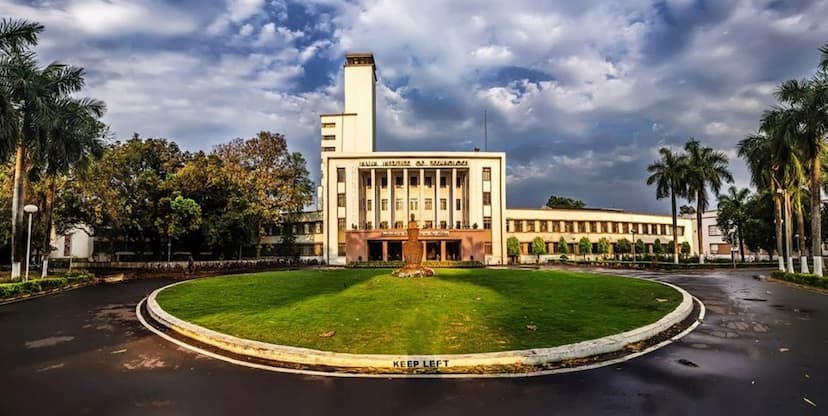How NEP 2020 is Changing Science Curriculum Revolution in India?

Revolutionizing Science Education in India: The Impact of NEP 2020
Empowering Students and Professionals with Enhanced Science Curriculum
In the diverse tapestry of human history, civilizations have risen and fallen, each leaving behind a legacy that shapes our world today. Amidst this rich historical backdrop, it is undeniable that politics and religion have played pivotal roles in framing the principles of living and regulating livelihood for the masses.

However, as time progressed, the insatiable human curiosity and the desire to control material resources gave birth to conquests that expanded civilizations and led to encounters with “others.”

A Call for a Paradigm Shift in Science Education: NEP 2020
At some point in this intricate dance of civilizations, self-inquiry and reason began to challenge dogmatic beliefs. This shift marked the onset of a perpetual struggle between believers and rationalists, with terms like “believers” and “rationalists” emerging to label these opposing communities. The rationalists, characterized by their penchant for questioning and doubting, often found themselves branded as blasphemous or even persecuted.

Today, science education in India predominantly reflects European origins, neglecting the profound contributions of India’s own scientific luminaries. There is an urgent need to shift the focus away from Eurocentric history and incorporate India’s scientific heritage into the curriculum. This shift should not perpetuate jingoism or propaganda but aim to inspire genuine appreciation.


Science emerged as a crucial player in this ongoing narrative. Rationalists championed it as a paragon of virtue, a weapon to establish supremacy over believers. Yet, for the believers, it presented a new challenge to grapple with and integrate into their worldview.
While science is often seen as universal, transcending geographical boundaries, the reality is more complex. Science is inherently influenced by the cultures that nurture it. Scientific principles and truths are universal, but they are not the entirety of science. Human cognition and communication are deeply intertwined with science, introducing subjective elements that require careful consideration.
Science textbooks should delve into India’s ancient and medieval achievements, from Vedic insights to advancements in chemistry, physics, and mathematics. These contributions should be presented with depth and context, offering students a holistic view of India’s scientific legacy.
The NEP’s emphasis on mother tongue education is a step in the right direction, fostering inclusivity while acknowledging the role of language in power dynamics.

Changes Science Textbooks to the Transformative NEP 2020 Guidelines
The National Education Policy (NEP) of 2020 has ushered in a new era in India’s education system, emphasizing innovation and inclusivity. This article delves into a comprehensive set of recommendations for science textbook writers to align with the NEP 2020, ensuring that science education in India becomes not just informative but also inspiring and engaging. These guidelines aim to provide valuable information for students and professionals, fostering a deeper understanding of science.

1) Enhance Engagement and Interactivity
To spark students’ passion for science, textbooks must be designed to captivate their attention fully. Incorporating a wide range of visuals, activities, and interactive elements can transform science learning into an exciting adventure. Visual aids, such as diagrams, photographs, and illustrations, should be used strategically to help students visualize complex concepts. Experimentation, puzzles, and simulations can be integrated to encourage active exploration, turning the learning experience into an exhilarating challenge.
2) Focus on Problem-Solving and Critical Thinking Skills
NEP 2020 places a strong emphasis on the development of practical skills, with science education at the forefront. Textbooks should motivate students to apply scientific concepts to real-world problems, nurturing problem-solving and critical thinking abilities. Introduce thought-provoking problems and activities that require students to think analytically and creatively, thus fostering a deeper understanding of scientific principles.

Highlight the interconnectedness of science, technology, engineering, and mathematics (STEM) disciplines within real-world contexts. Show students how these fields converge, demonstrating how scientists, engineers, and mathematicians collaborate to solve practical problems. Illustrate how scientific principles underpin engineering designs and mathematical models, creating a holistic perspective of STEM subjects.
4) Promote Inclusivity
It’s crucial for science textbooks to reflect diverse cultures, perspectives, and experiences. Integrate photographs and illustrations depicting individuals from various backgrounds to make every student feel valued and represented. Highlight the contributions of scientists from diverse ethnicities, genders, and social backgrounds, promoting inclusivity in science education.
5) Use Gender-Neutral Language
Foster a culture of gender equality by employing gender-neutral language throughout the Science textbooks. Avoid gendered pronouns and terms that might inadvertently reinforce stereotypes. Instead, opt for gender-neutral language such as “they” and “them” to emphasize that science is accessible to all, irrespective of gender.
6) Emphasize Environmental Awareness
Incorporate sections on pressing environmental issues like climate change, biodiversity, and eco-friendly practices. Encourage students to become stewards of the planet by integrating environmental awareness into scientific education. Highlight the role of science in understanding and mitigating environmental challenges, fostering a sense of responsibility towards the environment.

Science is a dynamic field, constantly evolving with new discoveries and breakthroughs. Textbooks should reflect the latest advancements in various scientific disciplines. Include sections on recent scientific discoveries to convey the ever-evolving nature of science, inspiring students to remain curious and engaged.
8) Ensure Accessibility for All Learners
Education should be accessible to students with diverse needs. Implement features like large print, bold text, and clear illustrations to assist students with visual impairments. Consider providing audio versions of the text for students who are blind or face reading difficulties. Ensuring accessibility guarantees that all students have equal opportunities to explore the wonders of science.
9) Highlighting India’s Rich Scientific Heritage
Incorporate elements of India’s rich scientific heritage into science textbooks. Acknowledge the contributions of ancient and medieval Indian scientists and scholars. Introduce students to the profound scientific concepts found in ancient texts like the Vedas, and Upanishads, and traditional systems like Ayurveda. Discuss India’s historical achievements in fields such as metallurgy, mathematics, astronomy, and more.
10) Encourage Cross-disciplinary Learning
Promote cross-disciplinary learning by showcasing the connections between science and other subjects like literature and philosophy. Highlight instances where scientific concepts were beautifully integrated into poetry, literature, and philosophy. For instance, the poetic descriptions of respiration found in ancient texts can be used to explain scientific concepts in an engaging manner.
Conclusion
The NEP 2020 marks a pivotal moment in India’s education system, calling for a paradigm shift in science education. Science textbook writers have a crucial role in shaping the future of education by adhering to the principles of engagement, inclusivity, problem-solving, and environmental awareness outlined in this blueprint. By infusing India’s rich scientific heritage into modern science textbooks and promoting cross-disciplinary learning, we can inspire a new generation of scientifically literate and socially conscious individuals. This holistic approach to science education will not only empower students but also contribute to the progress and development of the nation.
Also, read Top 10 Educational Magazines for Students
Meet Tanu Bhatnagar, an educational expert with extensive experience in teaching, research and mentoring.With a decade in education and research, Tanu combines academic expertise with engaging storytelling. Her research background ensures every article is well-researched and insightful. Beyond textbooks, Tanu's expertise spans writing, exam preparation, economic trends, and global education, delving into the realms of spiritual awakening. This diverse perspective shines through in his writing, offering a fresh take on education. Join Tanu and CollegeChalo for an enriching learning adventure, where his passion ignites yours, and his words light your way.









